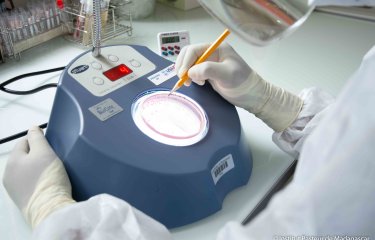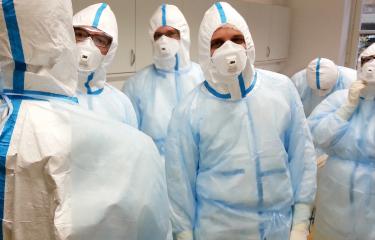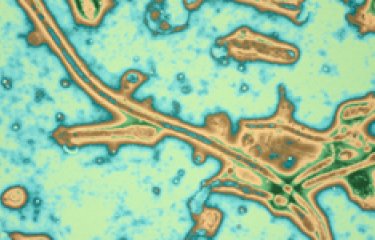On a visit to the Institut Pasteur, Chrysoula Zacharopoulou, French Minister of State attached to the Minister for Europe and Foreign Affairs, welcomed the Institut Pasteur's decision to send scientists to help with the relief effort following the earthquake in Turkey.
In April 2023, Turkey withdrew its request for assistance to the World Health Organization (WHO) for the deployment of mobile laboratories. However, the Institut Pasteur's Laboratoy of Urgent Response to Biological Threats will go there in june within the scope of an organized exercise by Turkey under the aegis of the WHO.
Following the 7.8-magnitude earthquake that hit Turkey and Syria on February 6, 2023, the Institut Pasteur has decided to participate in a "mobile laboratory" mission. The mission will involve around ten volunteers from the Institut Pasteur's Laboratory for Urgent Response to Biological Threats (CIBU), together with scientists from several research units.
Their task will be infectious disease surveillance and rapid diagnosis for local populations, especially in view of the risk of yellow fever, typhoid, cholera and tuberculosis.
The mission will last for at least three months, with two-week rotations of groups of three people. The mission will be carried out under the mandate of the World Health Organization (in response to the GOARN/WHO request for assistance in supporting Turkey in the areas affected by the earthquake). The decision was welcomed by the French Minister of State for Development, Francophonie and International Partnerships, Chrysoula Zacharopoulou.
To mark the announcement of the mission, Chrysoula Zacharopoulou visited the Institut Pasteur and especially spent time at the CIBU, where she spoke to Director Jean-Claude Manuguerra and also Professor Sir Stewart Cole, President of the Institut Pasteur, and Yves Saint-Geours, Chairman of the Board of Governors.
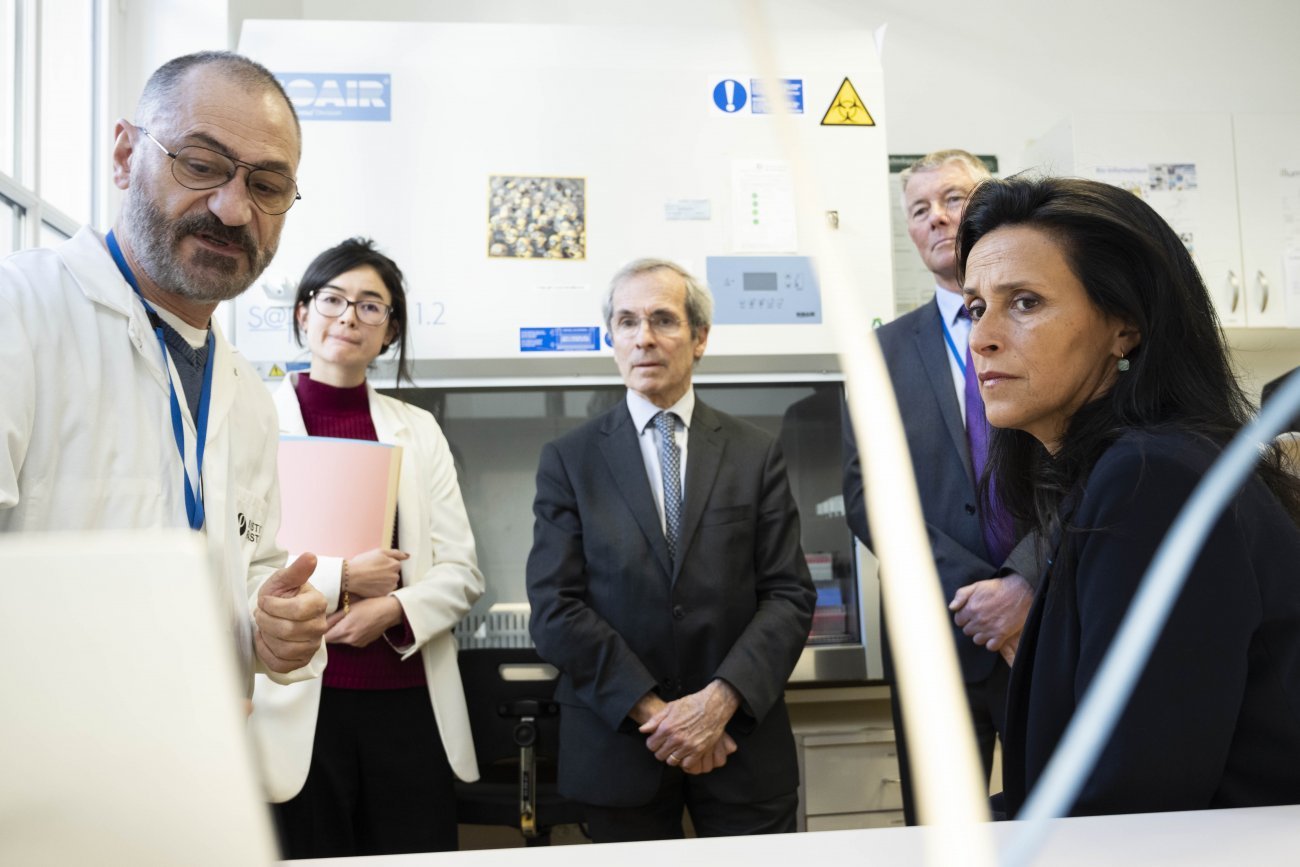
French Minister of State for Development, Francophonie and International Partnerships, Chrysoula Zacharopoulou visits the CIBU and discusses with its director, Jean-Claude Manuguerra, in the presence of Professor Sir Stewart Cole, President of the Institut Pasteur, and Yves Saint-Geours, Chairman of the Board of Governors.
The next part of her visit involved several presentations by Stewart Cole, accompanied by Isabelle Buckle, Executive Vice-President for Technology Transfer and Industrial Partnership, and Fernando Arenzana-Seisdedos, Vice-President International Affairs. These presentations gave Chrysoula Zacharopoulou a clearer idea of the Institut Pasteur's missions and its efforts to develop scientific collaboration in various countries (United States, Brazil, India, Japan, etc.).
The Institut Pasteur's role as coordinator of the 19 consortium partners involved in the four-year DURABLE project, funded by the European Health Emergency Preparedness and Response Authority (HERA), was a particular focus of discussions.
The "One Health" challenges facing the global community, preparedness for future pandemics and the need for European cooperation in health and research were also discussed. The Minister of State particularly highlighted the crucial role played by the Institut Pasteur and the Pasteur Network at international level, especially in health partnerships between France and Africa for vaccine production on the African continent.
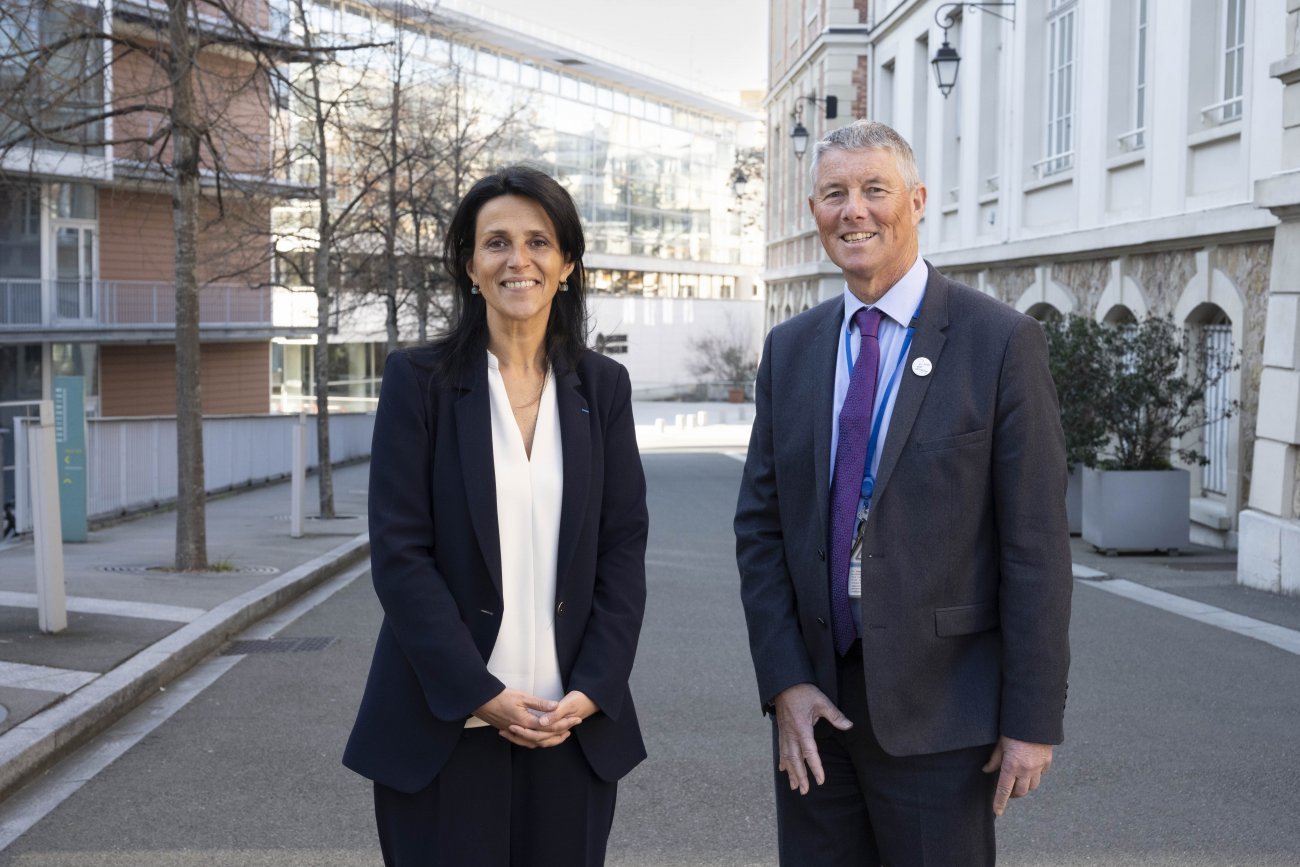
French Minister of State for Development, Francophonie and International Partnerships, Chrysoula Zacharopoulou and Professor Sir Stewart Cole, President of the Institut Pasteur. Crédit : François Gardy/Institut Pasteur.
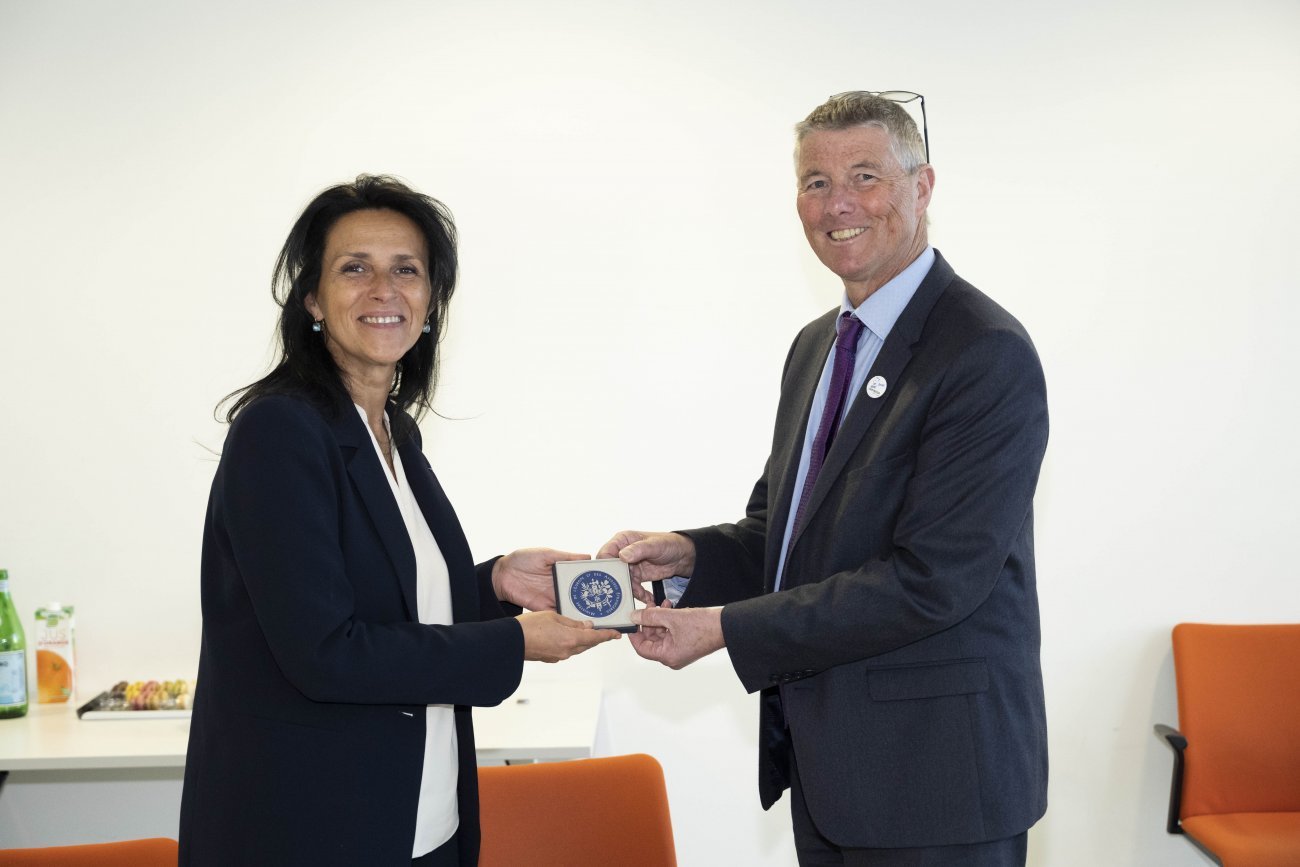
French Minister of State for Development, Francophonie and International Partnerships, Chrysoula Zacharopoulou receives the Bicentenary Medal from the hands of Professor Sir Stewart Cole, President of the Institut Pasteur. Crédit : François Gardy/Institut Pasteur.



